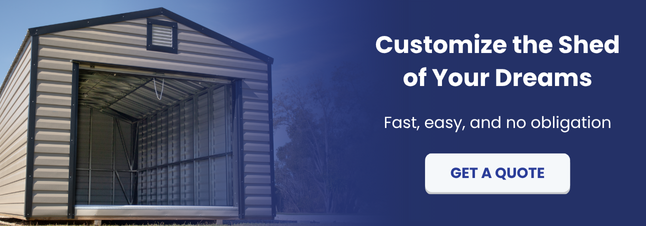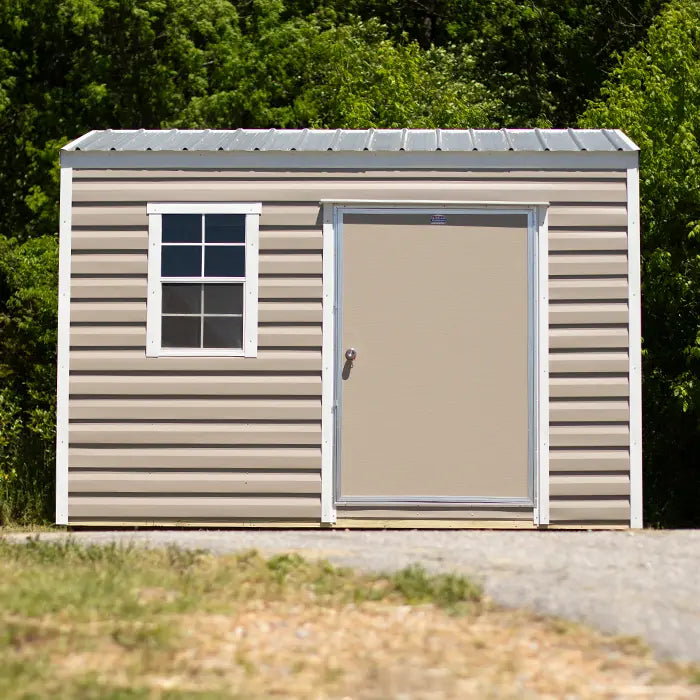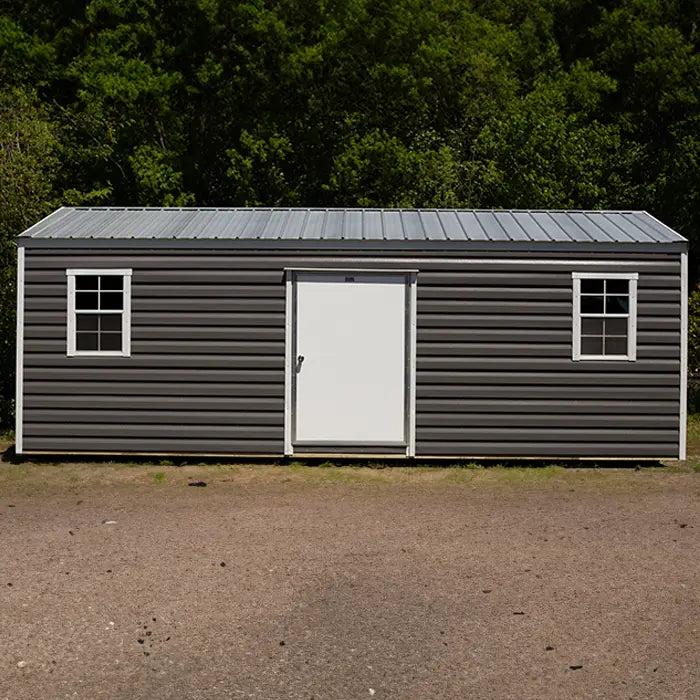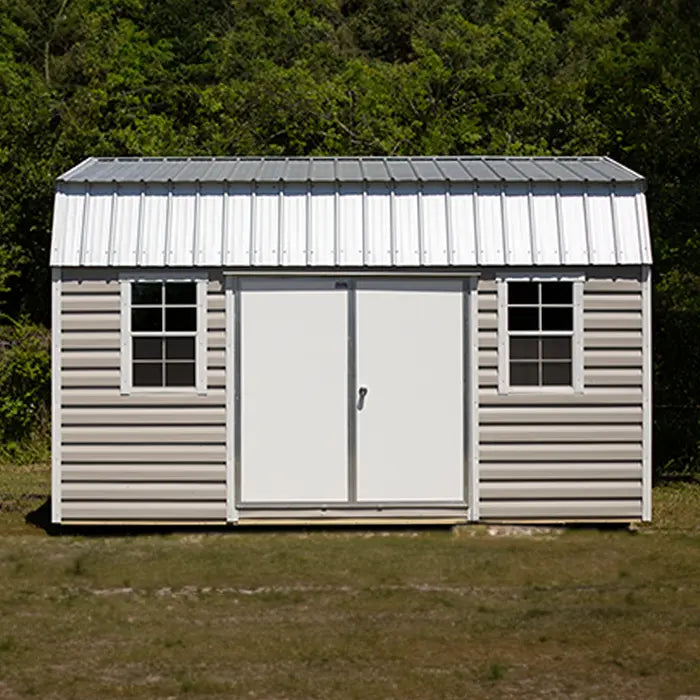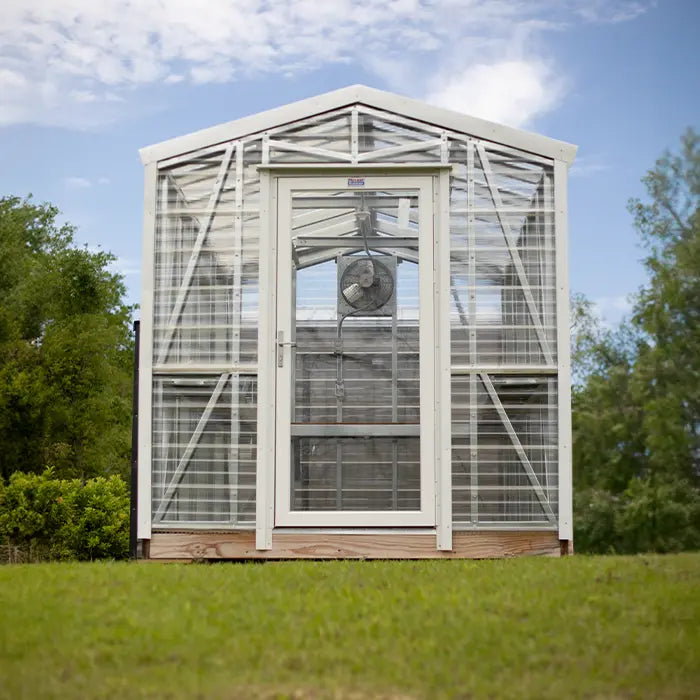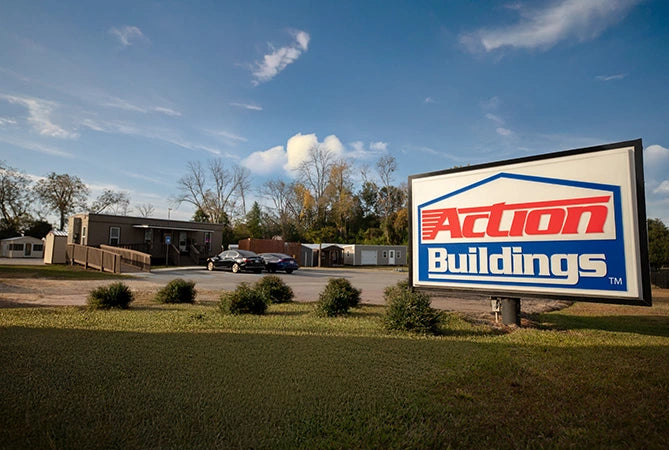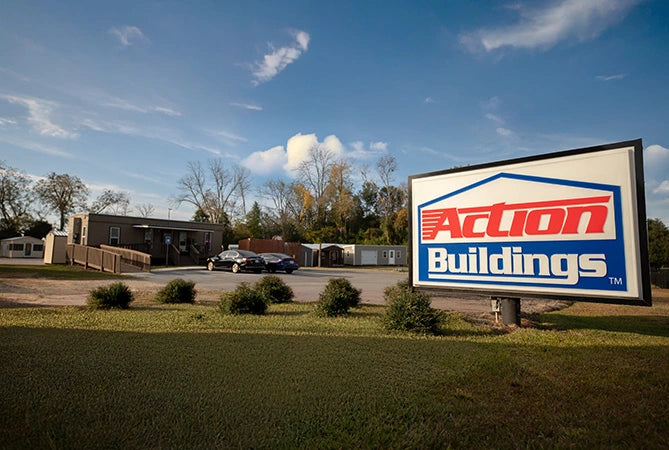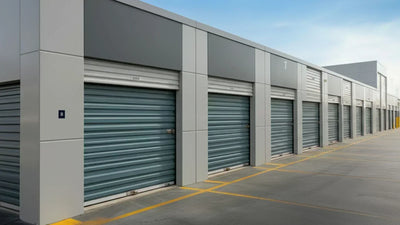Portable sheds offer homeowners a handy, multipurpose solution for storage, work space, or even recreational use. But what many people don’t realize is that portable sheds may have tax implications that could affect property costs.
Whether you’re adding a mini shed to declutter your yard or investing in on site sheds for larger storage needs, understanding how tax rules apply can help you avoid unexpected financial surprises. In this guide, we’ll break down how portable sheds are classified, when they might impact property taxes, and what you can do to minimize any potential tax burden.
Why Tax Rules for Portable Sheds Matter
The popularity of portable sheds has surged in recent years, with homeowners seeking affordable and flexible ways to store their things. Whether used for tool storage, a home office, or even a small workshop, these structures provide a practical way to get more usable space from your property. Many folks overlook their tax implications, however, which can lead to unexpected assessments or property tax increases.
One of the key reasons tax rules matter is that local jurisdictions may classify portable sheds differently based on their size, use, and foundation type. For example, a mini shed that sits on a gravel base and can be moved easily is likely to be considered personal property. On the other hand, a larger, fixed on-site shed with a concrete foundation might be categorized as real property—which could increase your overall property tax bill.
Understanding these distinctions is crucial to making an informed decision when purchasing or installing a portable shed. Without proper knowledge of how tax laws apply, you may inadvertently increase your property taxes or face compliance issues. By learning the tax rules upfront, you can plan ahead and take steps to ensure your portable shed remains a cost-effective and practical addition to your property.
What Makes a Shed Portable & Not Permanent?
Not all sheds are created equal when it comes to tax classification. The main distinction between portable sheds and permanent structures lies in their ability to be moved. Tax laws often differentiate between personal property and real property, with portable storage sheds typically falling under the former—provided they meet certain criteria.
A portable shed is a shed building designed to be easily relocated. These structures are typically pre-assembled or built using modular components, allowing homeowners to transport them to a new location if needed. Unlike permanent buildings, they don’t require extensive site preparation or a deeply rooted foundation.
If you’re trying to determine if a shed is a permanent structure, several factors determine whether or not it qualifies as portable:
-
-
Lack of a permanent foundation: Portable storage sheds are usually placed on gravel, wooden skids, or other non-permanent bases rather than being anchored to a concrete slab.
-
Ease of relocation: These sheds are designed to be transported via trailer or lifted using equipment without significant disassembly.
-
Minimal site alteration: Unlike permanent structures, portable sheds do not require extensive excavation, plumbing, or electrical work that could make them a fixed part of the property.
-
It’s crucial to understand the difference between portable and permanent sheds when it comes to tax implications. Permanent sheds are often larger and made with materials that integrate them into the property's landscape, while portable sheds maintain a lighter, modular design.
Portable options are commonly used for temporary storage, workshops, or garden sheds, whereas permanent sheds may be designed for long-term use with custom-built interiors. And if it's anchored to a foundation with plumbing, electrical wiring, or insulation, tax authorities may classify it as real property, increasing potential property taxes.
How Portable Sheds Are Classified in Tax Law
In tax lingo, portable or mobile sheds are generally classified as either real property or personal property. In most cases, sheds built permanently attached to the ground—such as one built on a concrete foundation or connected to utilities—will be considered real property. This means it becomes part of the overall taxable value of your home, potentially leading to higher property taxes.
On the other hand, if a storage building is designed to be moved easily and is not permanently secured, it’s typically classified as personal property. This often excludes it from property tax assessments.
The way tax authorities classify portable storage sheds varies by location, and some jurisdictions have specific rules regarding size, utility connections, and intended use. A high quality shed that has electricity, plumbing, or insulation may be considered a taxable structure, even if it is technically movable. In contrast, a mobile shed that rests on skids or a gravel base without permanent fixtures is more likely to be excluded from property tax calculations.
So, do sheds add property value? It depends. If categorized as real property, it may increase your tax burden, particularly if it is large or resembles a cabin shed with a porch or lofted barn shed. On the other hand, if it remains personal property, it is typically exempt from direct taxation. Either way, a well maintained shed that increases your home value to potential buyers can be a benefit beyond just extra storage space.
To minimize potential costs and not pay property taxes on portable buildings, be sure to confirm how local tax authorities define portable sheds before installation.
Situations Where Portable Sheds May Impact Property Taxes
While portable sheds are often classified as personal property, certain situations may arise in which they may still impact your property taxes. Local tax regulations vary, and factors like shed size, usage, and placement can influence whether your portable shed is considered taxable.
One key factor is size. A small structure used for basic storage is less likely to be taxed than one with more square feet, such as a larger lofted barn shed. If the shed is large enough to be considered a significant addition to the property, it may trigger a reassessment by tax authorities.
Similarly, the way you utilize your portable shed can play a role in taxation. A simple storage shed may not affect property taxes, but if the shed is used as a workshop, home office, she-shed, or guest space, it could be classified as real property. This is especially true if you install utilities such as electricity, plumbing, or HVAC systems to make it more of a living space.
Placement is another important consideration. A cabin shed with a porch or a garage building positioned in a way that integrates it with the property—such as being attached to the main home or built on a permanent foundation—may be subject to taxation. Even if a shed is movable, its classification could change based on how seamlessly it fits into the property’s outdoor space.
Tips to Minimize Tax Burden from Portable Sheds
Although portable sheds can sometimes impact property taxes, you can find ways to minimize potential tax burdens and keep your shed classified as personal property rather than real property.
One of the most effective strategies is to avoid permanent foundations. Tax authorities are more likely to classify a portable shed as real property if it is anchored to a concrete slab or has footings that permanently attach it to the land. Instead, using a gravel base, wooden skids, or cinder blocks can help maintain its status as personal property and potentially keep it exempt from property taxes on portable buildings.
Researching local tax regulations before investing in a shed is another crucial step. Different jurisdictions have unique rules about what qualifies as taxable property, and some may assess sheds based on factors such as size, electrical hookups, or interior modifications.
The best place to start is your county’s tax assessor’s office, which can provide information on how portable storage sheds are classified in your area. Many tax assessor websites have searchable databases where you can look up property tax codes, zoning laws, and assessment guidelines related to on-site sheds and buildings.
If online resources are unclear, try calling or visiting the office in person to help clarify specific regulations. Additionally, city or county building departments often have information on permit requirements and tax implications for sheds, especially if they exceed certain size limits or have utilities installed.
Keep in mind that homeowners associations (HOAs) may also have their own tax-related rules for sheds, so checking with them can prevent compliance issues. Finally, when in doubt, consulting a local real estate attorney or tax professional can provide expert guidance on how to keep your portable shed within legal and tax-friendly boundaries.
Choosing a shed that is clearly designed for mobility can also help. Boat sheds, mini sheds, and other structures that are built for easy relocation are less likely to be taxed as permanent fixtures. If tax authorities ever question the classification of your shed, having documentation that proves it is portable—such as manufacturer specifications or proof of previous relocations—can support your case.
By keeping these considerations in mind, you can enjoy the benefits of a shed without facing unexpected property taxes on portable buildings. Taking proactive steps when selecting, placing, and maintaining a portable shed can help you maximize its utility while minimizing its financial impact.
Save Money with Tax-Smart Portable Sheds
Investing in a portable shed doesn’t have to mean paying more in property taxes. With the right approach, you can enjoy all the benefits of extra storage or workspace while keeping costs low. By choosing a truly portable storage shed, avoiding permanent foundations, and understanding local tax laws, you can make informed decisions that protect your wallet.
Whether you need a mini shed for backyard organization or an ATV shed for vehicles, selecting the right shed can help you maximize savings while adding value to your property.
At Action Buildings, we offer a wide range of portable storage sheds designed for flexibility, durability, and tax-smart savings. Built to be relocatable and customizable, you can create the perfect storage solution without worrying about unexpected tax burdens. If you're ready to find the ideal type of shed for your needs, explore our collection today and discover high-quality customer service and cost-effective options built with your budget in mind.
